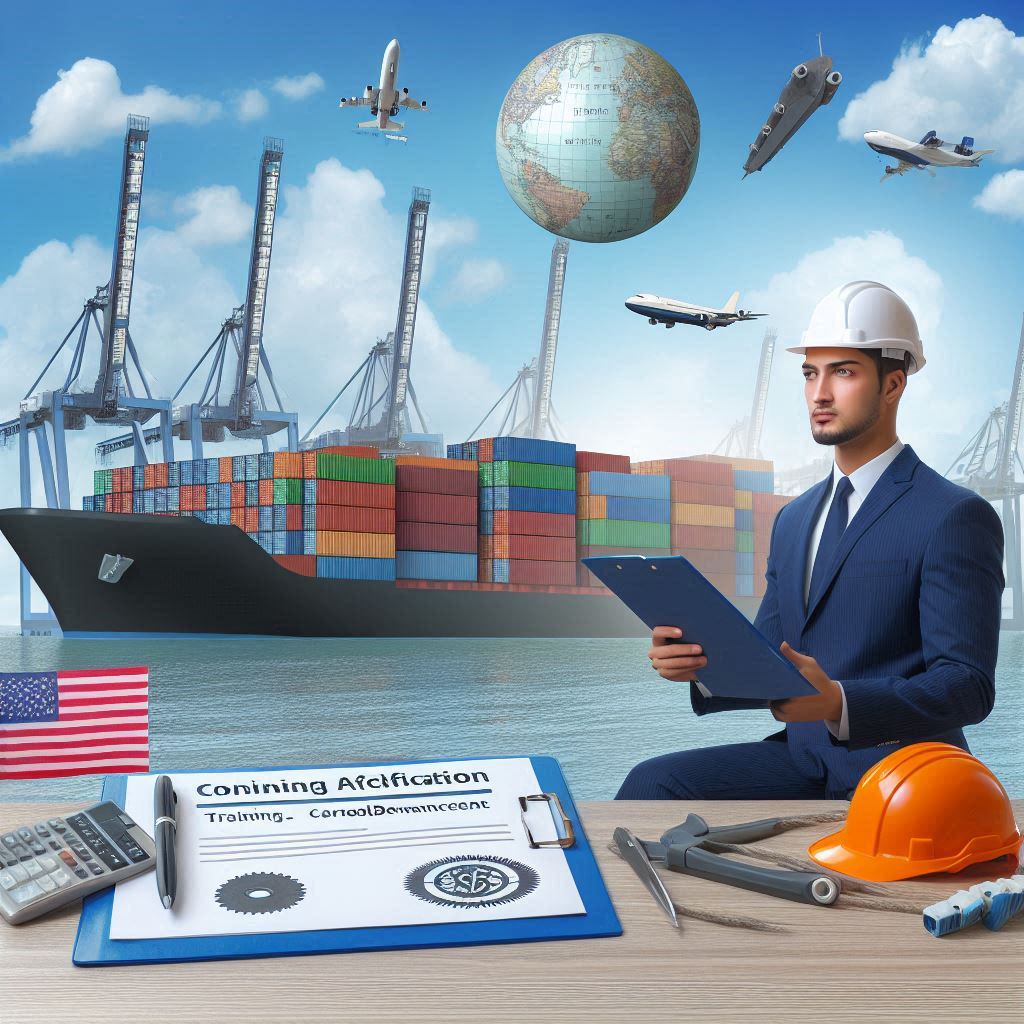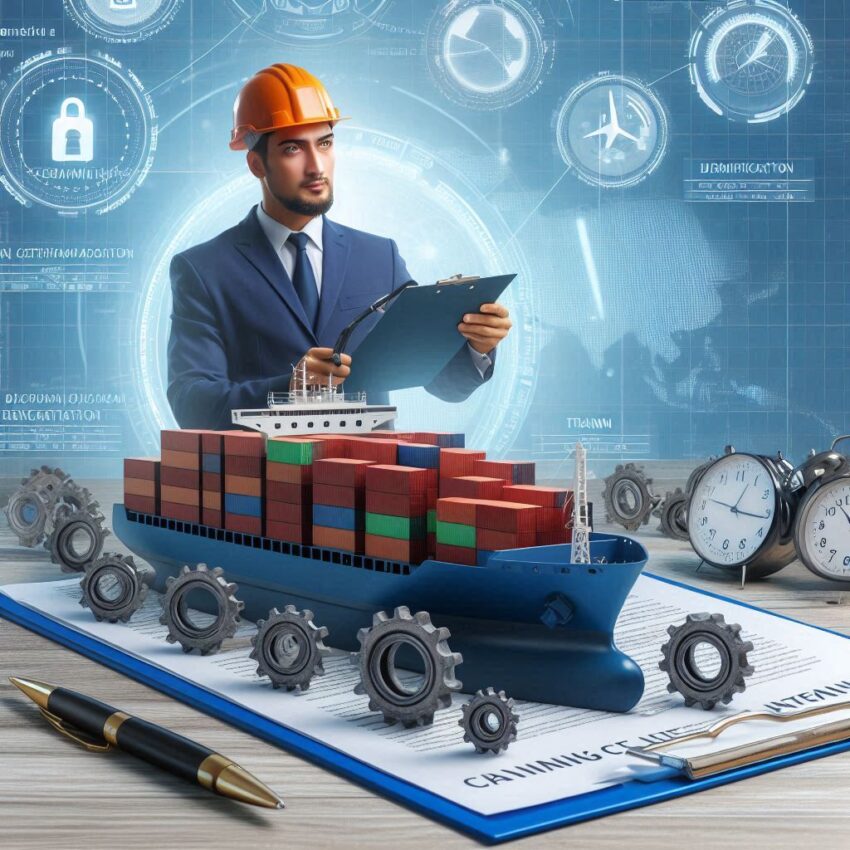 As the container shipping industry continues to expand and develop, the need for skilled professionals rises in tandem. For those considering careers in maritime transport, understanding the training, certification, and educational pathways is important.
As the container shipping industry continues to expand and develop, the need for skilled professionals rises in tandem. For those considering careers in maritime transport, understanding the training, certification, and educational pathways is important.
Understanding Container Shipping Training Programs
Entry-Level Training Programs
Entry-level training programs are essential for individuals new to the shipping sector, as they lay the groundwork for a successful career in this complex field. These programs are designed to cover fundamental aspects of the industry, ensuring that newcomers gain the essential knowledge and skills needed to navigate their roles effectively.
One of the cornerstone initiatives in this regard is the Basic Seamanship Training. This comprehensive program, typically spanning several weeks, provides an in-depth overview of marine safety practices, vessel operations, and environmental stewardship. The training is structured to familiarize participants with the core principles of seamanship, including safety measures, emergency protocols, and basic navigational skills. This foundational knowledge is indispensable for those at the outset of their maritime careers, equipping them with the practical skills necessary to operate safely and efficiently on board vessels.
This program explores the legal framework that governs international shipping, which is important for any professional in the industry. Understanding maritime law is essential for ensuring compliance with international regulations, handling legal disputes, and navigating the complexities of global trade. This course provides students with insight into key legal concepts, regulatory bodies, and the intricacies of maritime contracts and insurance.
Advanced Training for Specializations
Progressing beyond elementary instruction, advanced courses in container shipping delve deeper into complex and specialized areas of the industry. These training sessions typically incorporate hands-on experiences and simulations, providing professionals with the practical skills and knowledge needed to excel in real-world scenarios.
One such program is Advanced Container Handling. This course is designed for seasoned professionals who seek to specialize in the efficient loading and unloading of containers. It covers advanced techniques and strategies to ensure minimal operational downtime, which is crucial for maintaining the smooth flow of goods and optimizing the use of port facilities. Participants learn about the latest technologies and methodologies in container handling, enhancing their ability to manage operations more effectively and respond swiftly to logistical challenges.
Port Management Training aimed at mid-level professionals, this program focuses on the comprehensive management, logistics, and administration of port operations. It addresses port infrastructure, cargo handling, and the coordination of various stakeholders involved in port activities. Examining case studies and engaging in simulations, participants gain a thorough understanding of the complexities of port management. They learn how to optimize port operations, improve efficiency, and implement best practices in port administration.
Importance of Certifications
Maritime certifications play a crucial role in the shipping industry by acting as a distinguishing factor that underscores a professional’s skills and knowledge. These credentials serve to enhance their qualifications, making them more competitive in the job market. Certifications such as the Standards of Training, Certification, and Watchkeeping (STCW) are recognized globally, ensuring that certified professionals meet international standards of safety and operational efficiency.
Сertifications contribute significantly to elevating the overall standards within the industry. They ensure that all personnel, from entry-level to advanced positions, possess a thorough understanding of maritime safety, environmental regulations, and best operational practices. This, in turn, fosters a culture of continuous improvement and adherence to high standards.
STCW Certification
The International Maritime Organization’s (IMO) Standards of Training, Certification, and Watchkeeping (STCW) Certification is arguably the most recognized maritime credential worldwide. This certification is structured into several levels and categories to cater to different roles and responsibilities within the maritime industry. One essential component is the STCW Basic Safety Training, which is mandatory for all seafarers. This training ensures that individuals possess fundamental skills in personal survival techniques, fire prevention, and first aid, laying the groundwork for safety and preparedness at sea.
Another aspect of STCW Certification is the Officer in Charge of a Navigational Watch (OICNW). This certification is specifically designed for individuals responsible for overseeing the navigational watch. It demands more intensive and specialized training, reflecting the advanced level of expertise required for this role. The OICNW certification covers a comprehensive curriculum that includes advanced navigational skills, safety procedures, and operational protocols, ensuring that officers are well-equipped to manage the complexities of maritime navigation.
IMDG Code Training
The International Maritime Dangerous Goods (IMDG) Code regulates the transport of hazardous materials by sea. This course is indispensable for anyone involved in the loading, packing, and handling of dangerous goods.
Logistics Education
Logistics education is a critical component for maritime shipping professionals who must continually update their knowledge and skills to keep pace with industry advancements. A Diploma in Maritime Logistics provides a robust foundation in key areas such as maritime operations, supply chain management, and transportation economics. This diploma equips individuals with essential insights into the mechanics of maritime logistics, enabling them to understand and optimize the flow of goods and services in the shipping industry.
For those aspiring to climb the corporate ladder, an Advanced Diploma in Supply Chain Management offers a deeper dive into more complex aspects of the field. This advanced course covers inventory management, warehousing, and sophisticated logistics strategies, preparing professionals to handle higher-level responsibilities and strategic decision-making.
Skills Required in the Container Shipping Industry
Professionals must thoroughly understand maritime technologies, including navigation systems, vessel mechanics, and cargo handling tools. Courses offering hands-on training with modern equipment are indispensable.
Understanding international maritime regulations is a non-negotiable skill. Proficiency in this area ensures that operations align with global standards, reducing the risk of sanctions and improving safety.
Professionals should be proficient in data analysis. Skills in utilizing shipping software to track and optimize routes, costs, and cargo loads are essential for streamlining operations.
Communication, leadership, and problem-solving abilities are equally significant. Being able to articulate problems and solutions, manage teams, and navigate complex situations are fundamental for effective vessel and port operations.
Importance of Continuous Education
Keeping up with technological advancements is essential for maritime professionals the industry. Engaging in ongoing training and courses ensures that these individuals remain well-informed about the latest trends, tools, and technologies. By proactively updating their knowledge and skills, professionals can significantly enhance operational efficiency and maintain a competitive edge.
Maritime laws and regulations are subject to frequent updates. Continuous education ensures that professionals are efficient in adhering to these changes, thereby reducing operational risks.
Ongoing education often provides valuable networking opportunities. Seminars, workshops, and certification programs enable professionals to connect with peers, leading to potential collaborations and mentorship opportunities.
Career Advancement Opportunities in Shipping Industry Careers
Entry- to mid-level positions in the maritime industry typically begin with roles such as deckhands or junior officers. Professionals in these roles can rise through the ranks by accumulating experience and earning relevant certifications.
A Deck Officer is responsible for navigational duties and safety inspections. This position is usually attained after completing basic maritime training and acquiring initial certifications. As deck officers gain more experience, they may take on greater responsibilities, including overseeing vessel operations and ensuring compliance with safety regulations.
A Logistics Coordinator focuses on managing supply chains and ensuring the smooth transport of goods. This role often requires a diploma in logistics education, equipping individuals with the necessary skills to coordinate and optimize the movement of cargo efficiently.
Senior-level roles in the maritime industry offer greater responsibilities and rewards for those with extensive experience and advanced certifications.
The Captain, or Master Mariner, holds the highest authority aboard a vessel. This prestigious role necessitates years of experience and comprehensive certification, including the Standards of Training, Certification, and Watchkeeping (STCW) and other advanced maritime courses. A Captain is responsible for the overall safety, navigation, and management of the ship and its crew, requiring exceptional leadership and expertise.
A Port Manager oversees all activities within a port, ensuring efficient and effective operations. This role demands an advanced diploma in logistics management and substantial experience in port operations.
Specialized Roles
Roles such as Dangerous Goods Safety Advisor (DGSA) or Vessel Traffic Service Operator present unique challenges and require specialized certifications like the IMDG Code Training or Vessel Traffic Services Certification.
Professional Development in Shipping
Many companies invest in the ongoing development of their employees. Employer-sponsored training programs cover advanced courses, ensuring that staff remain competent and motivated.
E-learning platforms provide flexible options for professional development. Courses on maritime certification, advanced logistics, and safety training can be taken online, enabling professionals to learn at their own pace.
These events offer opportunities for both learning and networking. Participation often leads to acquiring new skills and knowledge, maintaining professional relevance in an industry that never stands still.
The Role of Professional Associations
Senior-level roles in the maritime industry offer greater responsibilities and rewards for those with extensive experience and advanced certifications.
The Captain, or Master Mariner, holds the highest authority aboard a vessel. This prestigious role necessitates years of experience and comprehensive certification, including the Standards of Training, Certification, and Watchkeeping (STCW) and other advanced maritime courses. A Captain is responsible for the overall safety, navigation, and management of the ship and its crew, requiring exceptional leadership and expertise.
A Port Manager oversees all activities within a port, ensuring efficient and effective operations. This role demands an advanced logistics management diploma and substantial port operations experience.
Advantages of Diverse Skill Sets
Developing a diverse range of competencies can significantly enhance career prospects in the maritime industry. For example, acquiring skills in both maritime operations and logistics can make a professional more versatile and valuable. This dual expertise allows individuals to understand both the operational aspects of shipping and the intricacies of supply chain management. It enables them to contribute effectively across different roles and functions within maritime organizations, from optimizing vessel operations to coordinating efficient cargo movements.


